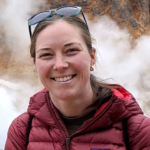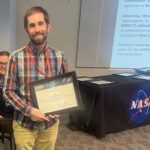India’s Society for Community Participation and Empowerment (SCOPE) is not the prototypical philanthropic organization.
Based on the same core principles employed by its predecessor, India’s Bharitiya Agro Industries Foundation (BAIF), SCOPE focuses on treating farms and farmers as an industry rather than a charity. Unlike BAIF however, SCOPE focuses on local, regional problems rather than the whole of India.
According to its website, SCOPE aims to “create opportunities of sustainable improved livelihood for (India’s) rural communities, especially the poor, women and other disadvantaged sections of the society, through community mobilization, empowerment and participation.”
The organization not only assists people in choosing appropriate technologies to help them become sustainable in their farming practices, but also provides an opportunity for researchers to improve earth research climate predictions in local areas.
“Everybody knows weather forecasts- somebody says there’s a 30% chance of rain, people know what to wear, etc.,” said Dr. Raghu Murtugudde, an Atmospheric and Oceanic Science professor at University of Maryland. “We don’t have the same thing for longer term forecasts, so that’s how you bring together the mental model with climate information to see where they meet.”
Murtugudde, a member of the Earth System Science Interdisciplinary Center, has been involved with SCOPE since its inception in 2000. He has helped the organization gain the funding it requires in order to continue its agricultural education mission.
Currently the organization is established in the Dharwad and Kot Umachigi village areas, which holds special significant for Murtugudde himself.
“I come from there, and when we were growing up we had to go sell firewood for my father and bring water for my mother- usually its anywhere from 100 yards to a mile, depending on the season, to the well,” said Murtugudde. “Water has always been a problem in that area; it’s in the rain shadow of the Western Ghats.”
Murtugudde said that SCOPE also focuses on involving people from the cities, as well as educating women about how climate, air quality and water quality affect health. The organization also teaches both older generations and children about the importance of rainwater collection. Participants also discuss water issues and the organization has planted more than 1.5 million trees in the area.
Murtugudde noted that some impressive grassroots organizations had resulted from the outreach.
“I cannot take credit for it, but the 1+ village that had 600 families, learned about agroforestry, composting, etc. They formed their own cooperative and an institution to teach other farmers about their practices,” said Murtugudde.
While Murtugudde mostly contributes remotely to the organization, he said he makes about four to five trips back to Dharwad each year. This August, he’ll travel back to Dharwad to teach a climate course for two weeks to a class of 35 students.
Hosted by the Indian Institute of Technology in Bombay, Murtugudde said the class aims to introduce the mixture of undergraduate and graduate students to another avenue for their collective talent.
“The course is a part of my dream to get smart kids in India to think about research in climate sciences and also indigenous solutions to our climate problems in India, since this is a technology institute,” said Murtugudde.
He hopes to help students develop an understanding of the vast field of climate science, which in Murtugudde’s experience is easier taught than self-learned.
“All parents want their kids to become engineers and doctors in India and I had to go through a Ph.D. in Engineering before accidentally finding out that there is something more fun and useful to do in life,” Murtugudde quipped. “I want to find a shortcut to that epiphany for as many kids as possible.”





